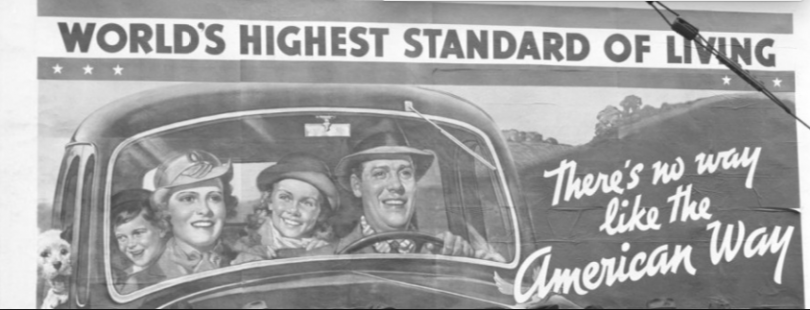aNewDomain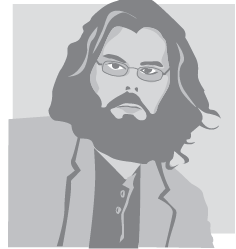 — There’s one thing I keep noticing among all the people who are nostalgically looking back at the old good days, who want to make America great again:
— There’s one thing I keep noticing among all the people who are nostalgically looking back at the old good days, who want to make America great again:
When these Americans say, “this isn’t the America I grew up in,” they don’t mean it literally, either.
Many say they remember a time when they prayed in schools, when respect for God and Country were the highest ideals.
They remember when everyone stood for the flag and recited the Pledge of Allegiance. They recall when their schoolteacher was Queen. Americans bowed down to authority back then.
Could it be that authority is really what all these ‘make America Great again’ people miss so much.
Because, back then, if you stepped out of line, the teacher hit you. If you stepped out of line in the neighborhood, someone else’s parents or even a stranger coul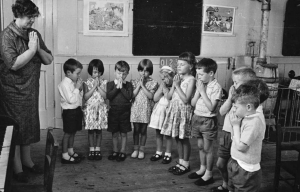 d hit you.
d hit you.
And when you got home, your parents sent you outside to cut your own implement for punishment — and then Dad hit you with that.
Oh, sure, life was good in the good old days, when black people couldn’t vote because of poll taxes and literacy tests.
When we were so scared that we elected an authoritarian government to root out the Commies and put God into the Pledge and on the paper money for the first time.
When we hid under our desks to practice for the nuclear apocalypse we were sure was coming.
Good times.
Another thing you hear a lot from the Make America Great Again folks and others who ache for the good old days: that discrimination isn’t real.
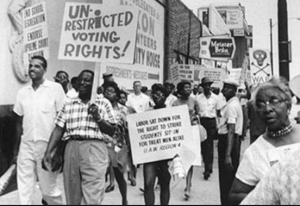 But it is.
But it is.
And no, it didn’t just start back up in the last 10 years, either. The only thing that’s happened is, it’s become visible.
The fact that “hands up, don’t shoot” is on the news now doesn’t make it news — or a new thing.
The fact that your neighborhood is safe and that none of our relatives have ever been shot by cops doesn’t mean there is no racism.
Racism never went away. We never solved it. Dr. Martin Luther King didn’t solve it.
And back in those good old days, black activists were getting murdered all the time. King. Malcolm X. Evers. Matthews, Lee, Jamal, Jordan …. shit, there are too many to list here.
Yes, it’s true that these days, black activists aren’t murdered like they were back then, back in the good old days.
Instead, they are disappeared. They are killed in bogus accidents.
Now, some people do agree with people’s rights to protest. They just wish they wouldn’t do it as Colin Kaepernick did, by publicly refusing not to stand before the flag.
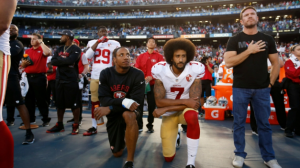 That disrespects all the people who died for our freedom, they say.
That disrespects all the people who died for our freedom, they say.
But that’s a worthy argument only until you consider that the Revolutionary War didn’t get any freedom for people of color.
It got more unfettered exploitation of the new land at the cost of the lives of the people living on it; it got slavery that continued here nearly 60 years longer than in Britain; it brought us this modern culture that imprisons its people at the highest rates in the world.
And the poor — and in particular, poor people of color — account for a disproportionate share of the incarcerated. Even though there are far more white Americans in the US.
If the protester has to run their protest by the majority for approval before enacting it, well, that’s not much of a protest.
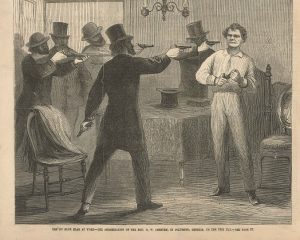 That was the decision King had to make.
That was the decision King had to make.
His march across the Pettus Bridge was outlawed. He faced the choice of going across, into the waiting arms of the police. He ended up staying behind while the protest march moved ahead, but he spent more than his fair share of time in prison.
And again, remember that King failed. Passive resistance failed.
People got to vote in the South for a little while. But the landmark Voting Rights Act of 1965, though, doesn’t have teeth.
Disenfranchisement still takes a lot of forms: from ID laws (read: poll taxes) to charging minorities with felonies in order to suspend or strip their voting rights from years to forever.
Few people know that King shifted his focus in his final years to fighting poverty. What good was it, he asked, to have the right to sit at the lunch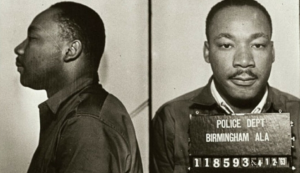 counter if a man could not afford a sandwich?
counter if a man could not afford a sandwich?
Not long after King shifted his focus from the South to Chicago to fight poverty among a frustrated, hostile populace, he was murdered. It was 1968, and he affected little or no redress for black poverty in the North by then..
So when white people offer black people advise on what sorts of protests are acceptable, that’s a bit like white folks offering treaties to the native people.
No no, you can definitely trust us this time. Promise! Really!
Also, there’s this:
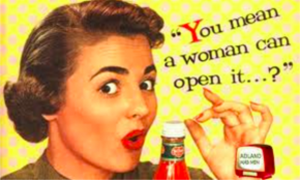 Back in the good old days, when America was “great,” most women felt they had no choice but to stay in their abusive, unhappy marriages forever.
Back in the good old days, when America was “great,” most women felt they had no choice but to stay in their abusive, unhappy marriages forever.
Back then, movies were full of savage Indians getting their just rewards from heroic cowboys. And back then, played minorities in the movies, often in brown make-up and wigs, enforcing the worst of the stereotypes. (I guess some things are eternal). Very few people in white suburban America ever saw an actual African-American, except the ones pedaled and pasteurized for carefully monitored entertainment consumptions on variety shows and the like.
Life isn’t what it used to be in America, that much is certain.
It is better in some ways.
But it is certainly not so much better that we now can look back and say we are good people or – god forbid – great.
If there’s anything encouraging about the times we find ourselves in now, it’s that at least we can see the problems now.
We just need the courage to look right at them.
People didn’t start abusing their power with the advent of smartphone cameras. They started getting caught.
And when we see an officer staging the scene after shooting a black man in the back, we have the alcoholic’s choice: to admit we have a problem or just go on suffering.
For aNewDomain, I’m Jason Dias.
Cover image: AtlantaBlackStar, All Rights Reserved. Children praying in school in the 1950s: HistoryNewsNetwork, All Rights Reserved. A 1950s-era voting rights protest: TeachRock.org, All Rights Reserved; Colin Kaepernick’s National Anthem protest: TheUndefeated.com, All Rights Reserved; The Ku Klux Klan at Work: Assassination of the Hon. G.W. Ashburn in Columbus, GA: By Unknown, from Frank Leslie’s Illustrated (1868), Public Domain via Wikimedia Commons. Martin Luther King Jr.’s Birmingham, AL arrest photo: History.com, All Rights Reserved; 1950s Del Monte ketchup ad: Viewholics, All Rights Reserved.

